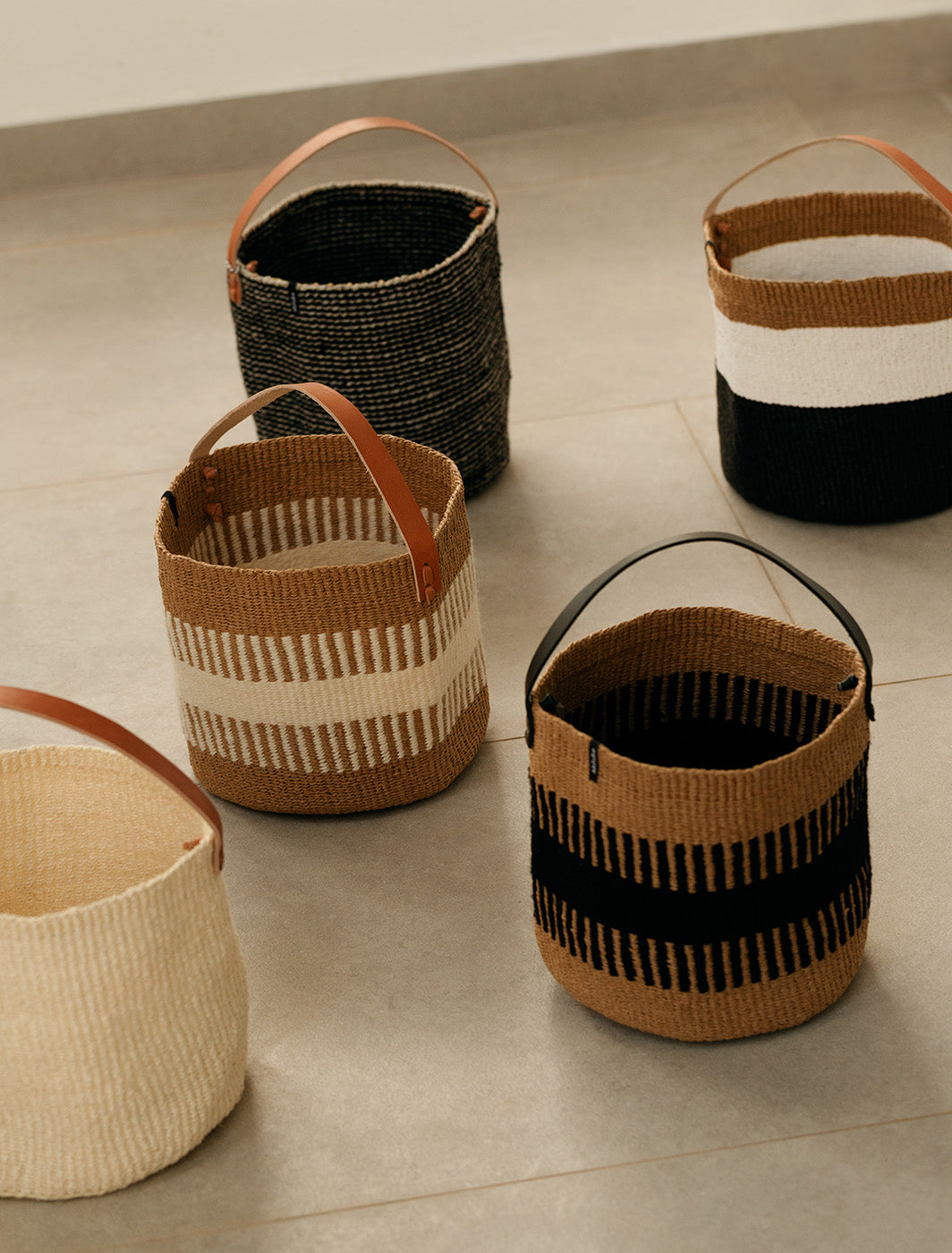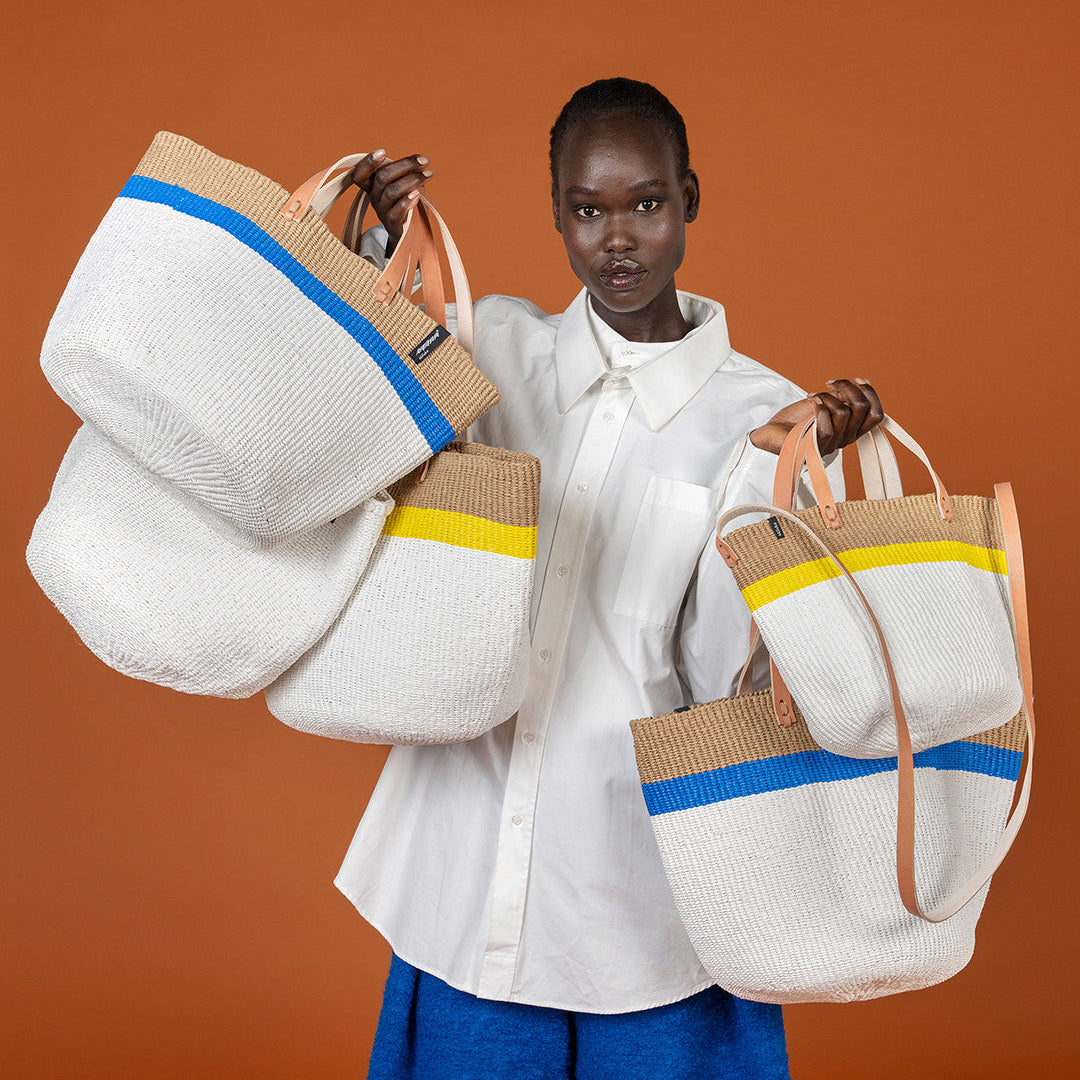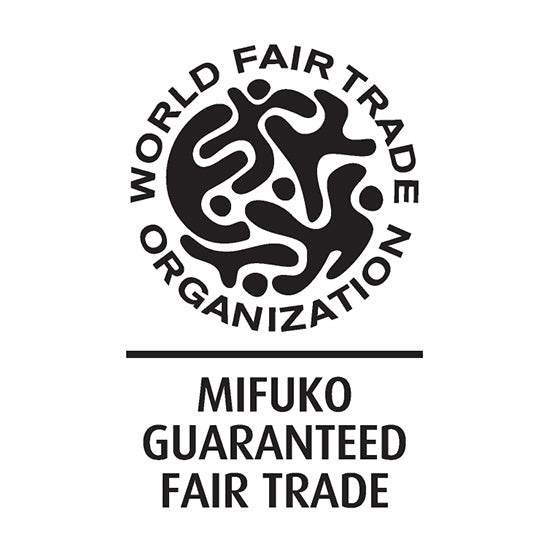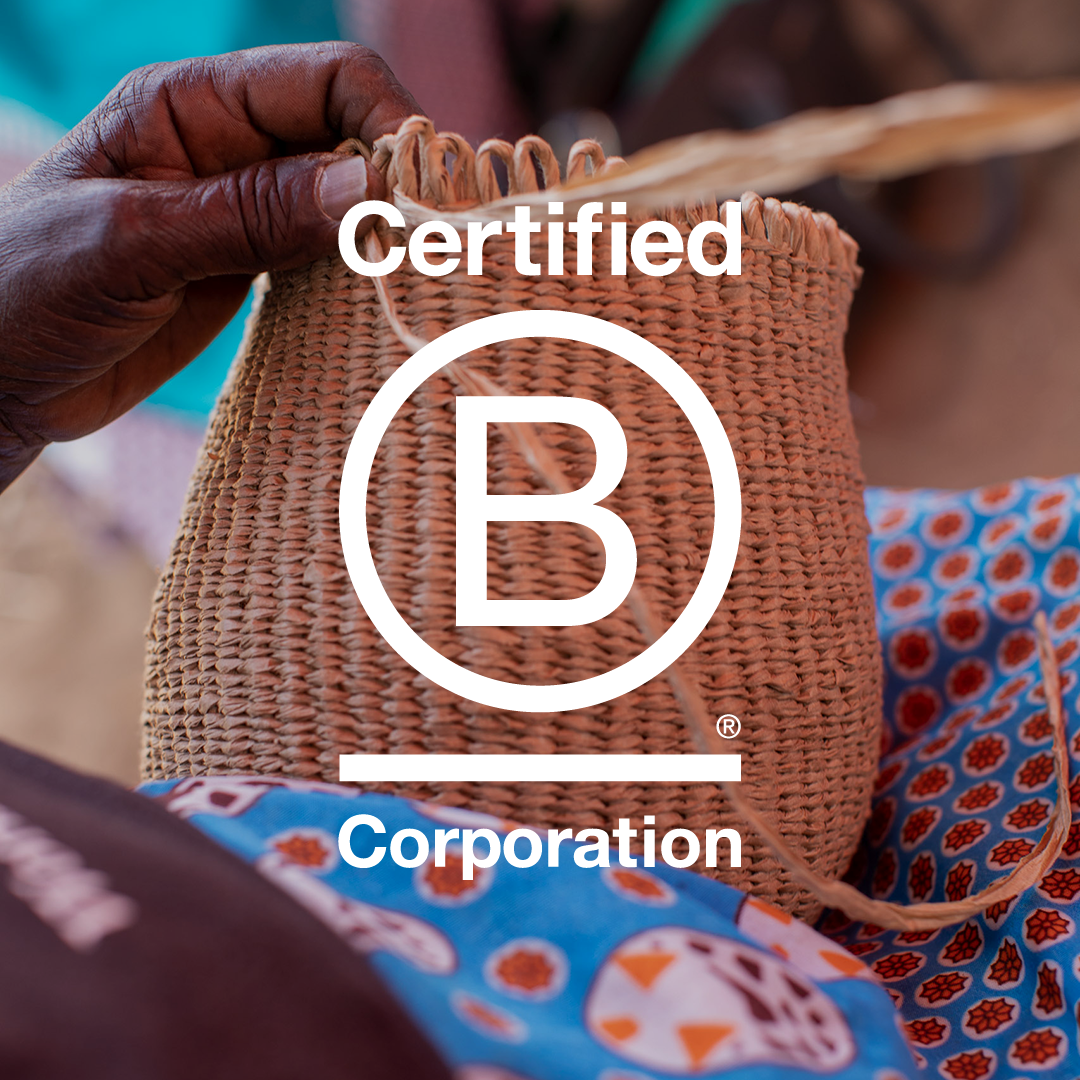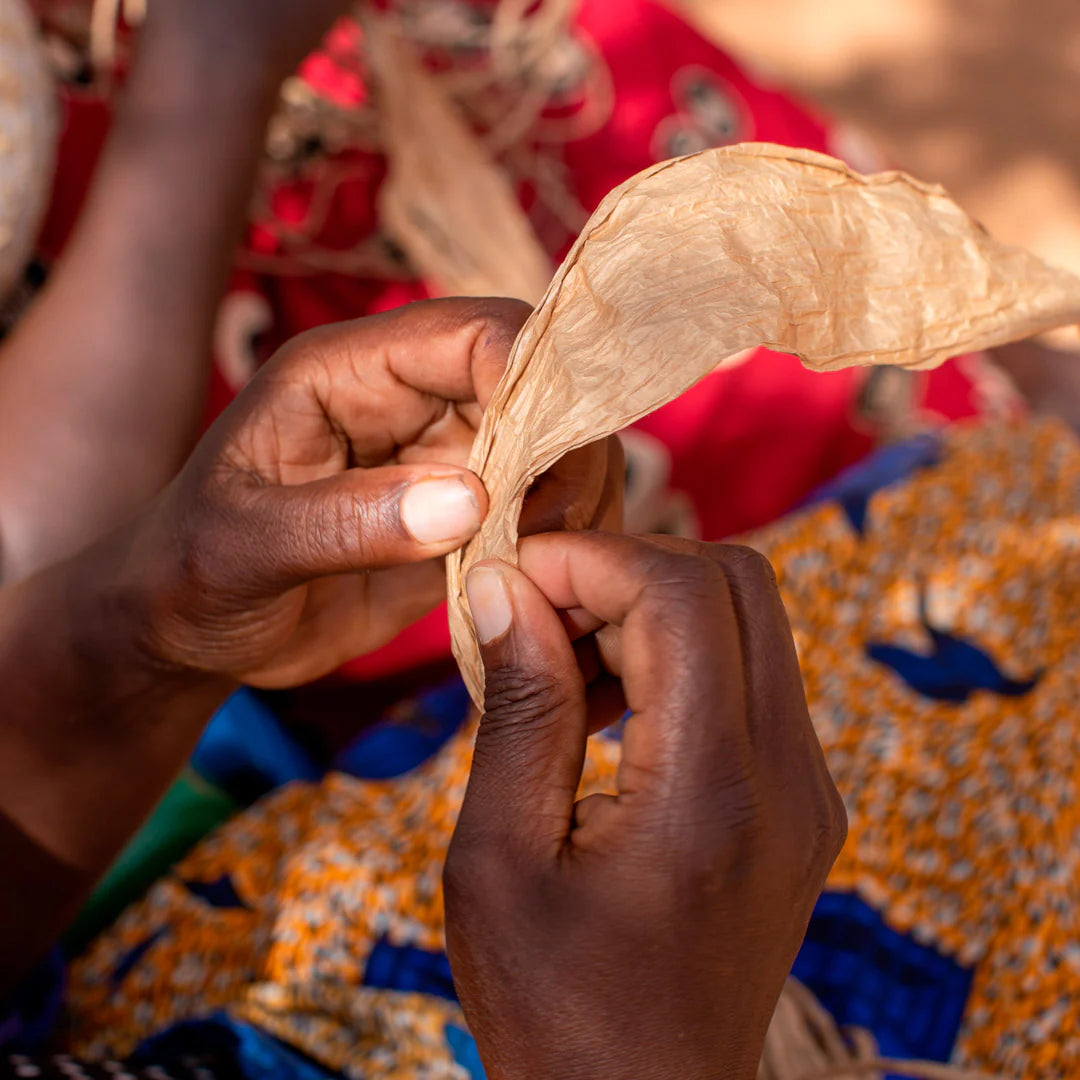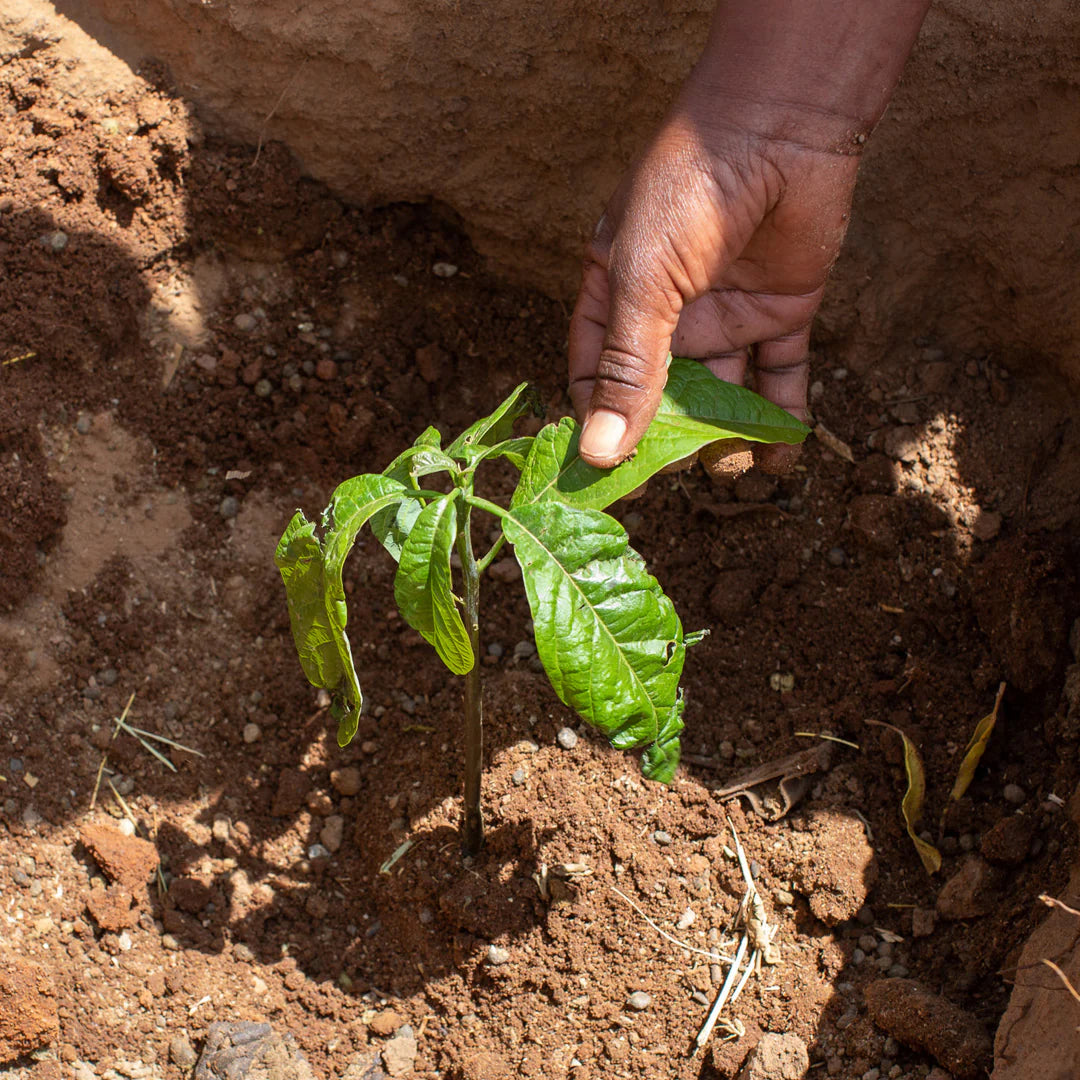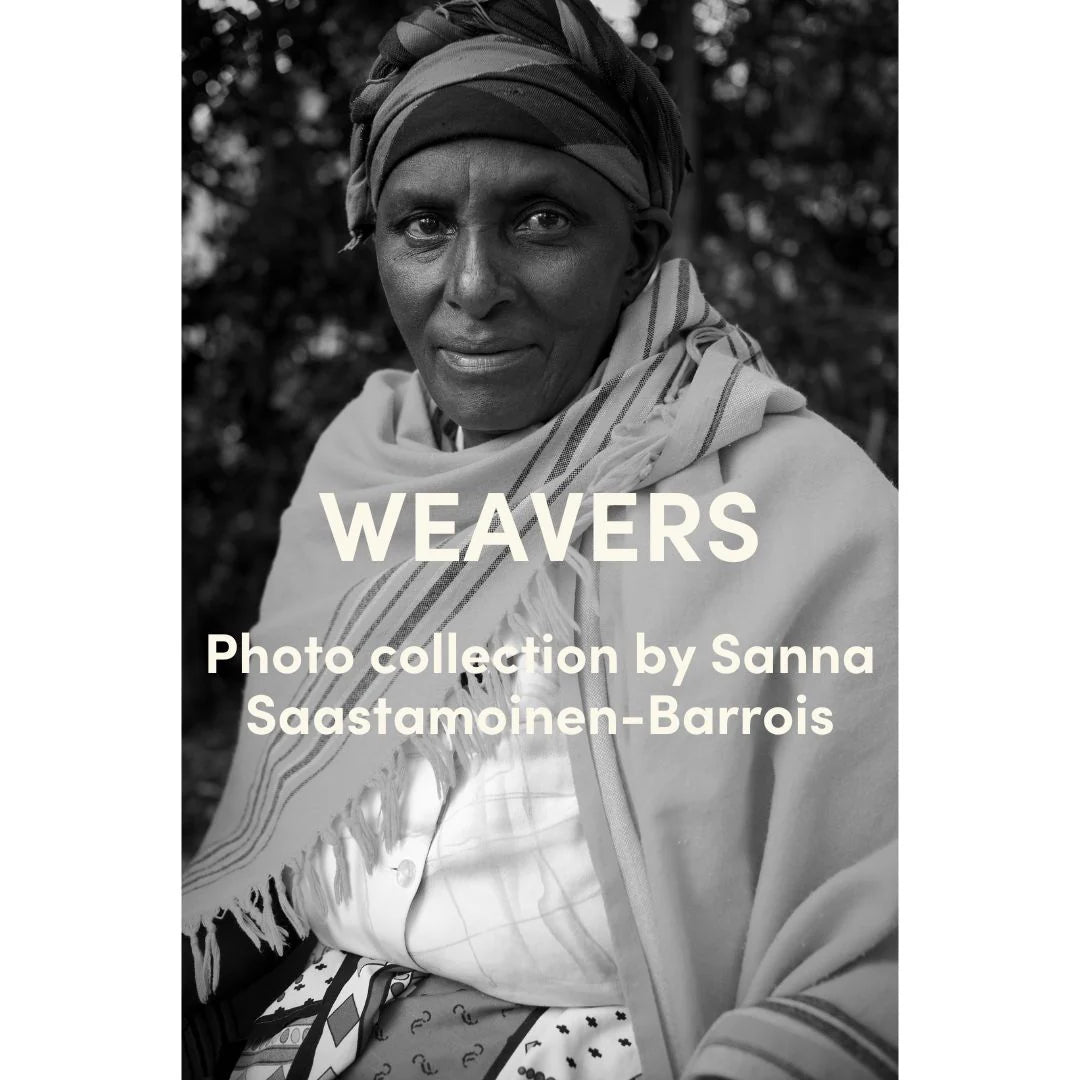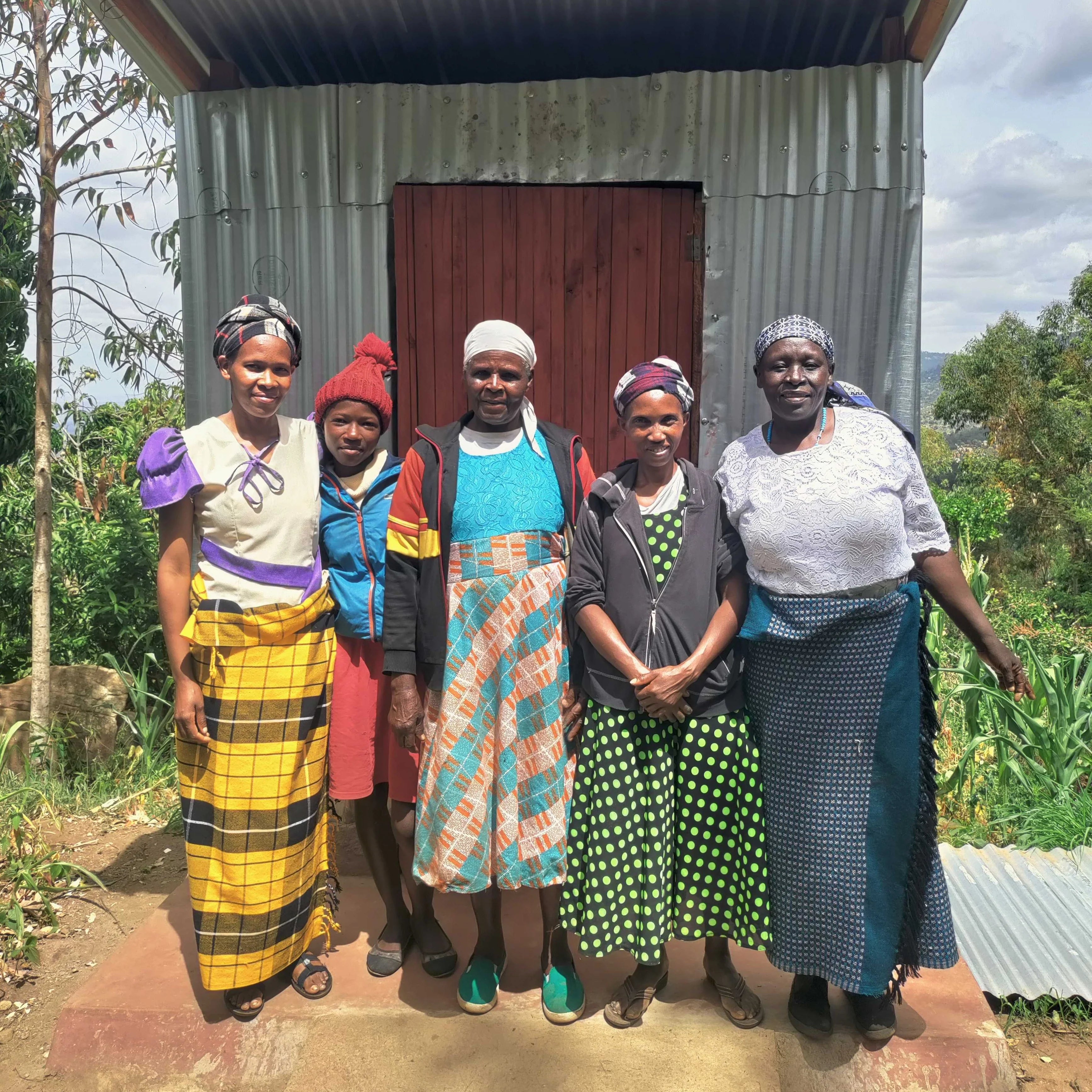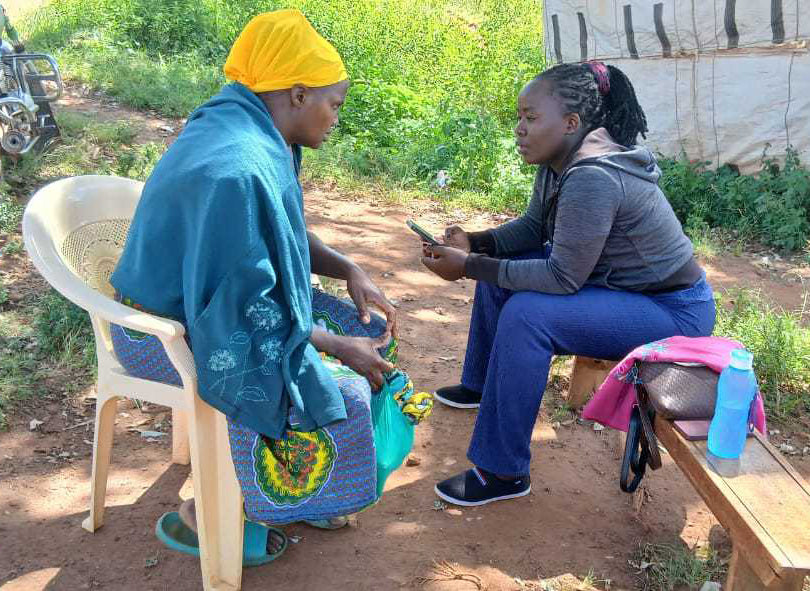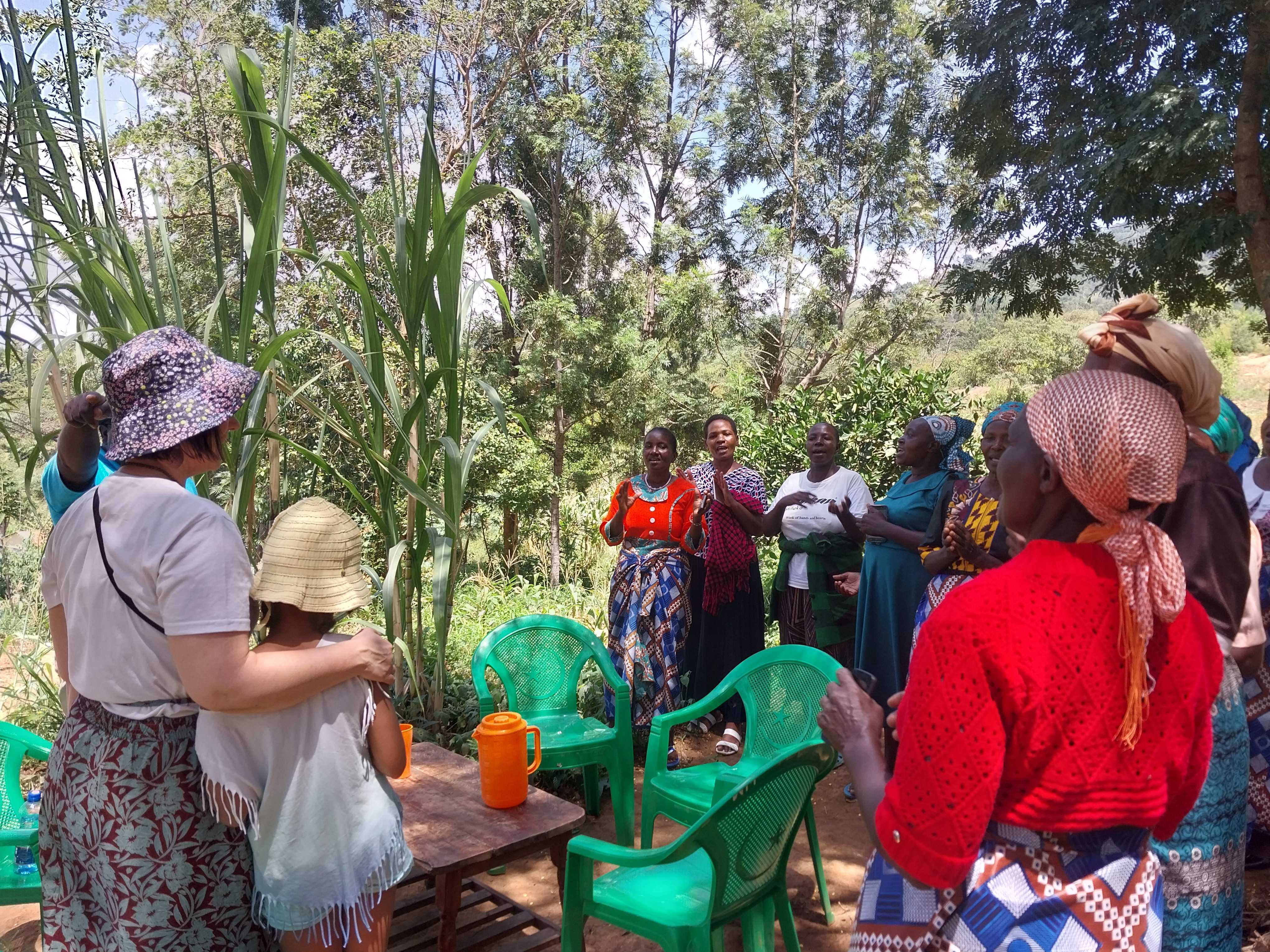By Anita Lintula, Project Manager of Mifuko Trust
Mifuko’s production is built on women’s self-help groups – community structures that have been part of rural Kenya for generations. These groups are rooted in traditional practices of mutual support in daily life: clearing land, building homes, harvesting crops. Later, they became known as Harambee – “pulling together” – and grew into a nationwide ethos of cooperation. In areas where formal social protection structures do not reach everyone, self-help groups form an informal safety net. In Kenya, a large share of the population works in the informal economy, and self-help groups provide their members with support in both everyday life and times of crisis.
In many cases, collaboration with Mifuko has revived old groups and inspired the formation of new ones. At the very least, it has strengthened their capacity – providing training, income, and a sense of purpose in working together. These groups are not just part of our operations. They are the foundation.
On average, a group has about 30 members. The women meet regularly to do handcrafts, save money, support each other, and learn together. Each group has its own internal structure, with a chairlady, treasurer, and secretary. These roles strengthen transparency, leadership, and shared responsibility.
Women’s groups are not only at the heart of Mifuko’s production – they are also at the core of Mifuko Trust’s work. The Trust has supported groups in strengthening their organisation and encouraged collaboration between them. This coordination is now led by Mifuko Women Development CBO, a women-led local organisation that brings the groups together and fosters joint development. Mifuko Trust’s project staff support the capacity building of the MWD CBO in its daily functions and through training.
More Than the Sum of Its Parts
A women’s group is not just a meeting place. It can be a turning point.
Alice Maeke is the treasurer of the CBO and a forest garden ambassador of her Kyeni Kya Vyaa women group working with Mifuko Trust. Her group meets regularly to craft, save money, and plan ahead – but the group’s importance goes far deeper. Alice says it has given her confidence, leadership skills, and a visible role in her community.
A retired teacher, Alice brings her background into the group. She knows how to guide, listen, and encourage. She adds structure, clarity, and courage to try new things. Knowledge and experience meet action.
In addition to her role in the group, Alice also represents her peers at a broader level: she served as a board representative of the Mifuko Women Development CBO during a recruitment process in February. Her involvement reflects the trust she has earned and her continued dedication to strengthening community leadership.
Together, the group has created its own way of earning income. They offer catering services for local events such as ceremonies and training – and there is demand. During a recent project follow-up visit, Alice suggested that Mifuko Trust could train more groups in this skill. Many already own tents and chairs that they rent out for events.
The women are also eager to explore new ideas. Alice’s group – and many others – would like to learn how to market and sell tree seedlings grown in their nurseries, established through the WASH and Grow! project. Several groups also run their own savings and small loan schemes, such as table banking. There is a strong will to grow, and a shared belief that small ideas can become sustainable livelihoods.

The group supports, strengthens, and uplifts. One woman can do a lot. But together, their impact multiplies. Alice’s story is just one among many. You can also read Harriet's, Ruth's and Dorothy's stories here. You can also read Harriet’s, Ruth’s and Dorothy’s stories.
Two Paths, One Goal – Mifuko & Mifuko Trust
Mifuko and Mifuko Trust walk side by side, but on different paths – both working toward the same goal: strengthening women’s livelihoods and building sustainable communities. Women’s groups are a key link in this work.
Mifuko is a social enterprise, placing direct orders with women’s groups and providing a regular, fair income. The work is flexible and part-time, allowing women to combine it with family and farming responsibilities. Mifuko also advocates for responsible production and a transparent supply chain.
Mifuko Trust is a non-profit organisation that deepens and expands this impact. The Trust offers training, resources, and opportunities not only to women but to the wider community. Its work focuses on women’s and girls’ wellbeing, ecological regeneration, and regenerative local economies.
Over the years, the Trust’s work has grown significantly. It now reaches far beyond the women’s group members. It engages entire villages – men, youth, children, and families. For example, our Community-Led Total Sanitation (CLTS) work has already reached over 20,000 people, improving hygiene, safety, and public health in the process.
Initiatives and Strong Community Commitment
The Mifuko Women Development CBO has also taken a strong role in identifying community needs. One successful initiative was their proposal to address water shortages by providing households with rainwater harvesting tanks. We were able to implement the project together with them thanks to private donations – you can read the full story here. This co-financing model is something we hope to continue and develop further this year.
We aim to create practices that don’t stay isolated, but take root and spread. Women’s groups are a strong foundation for this: they are community-driven, self-organised, and motivated to lead change.


